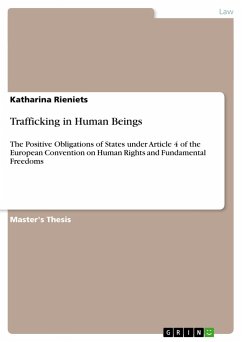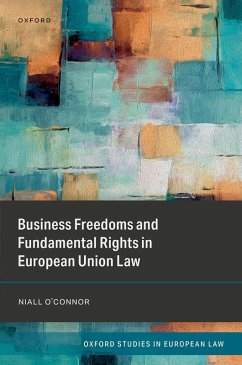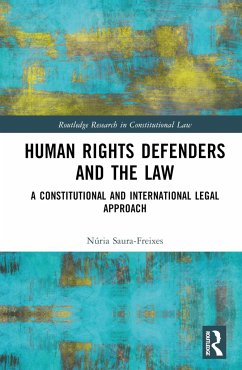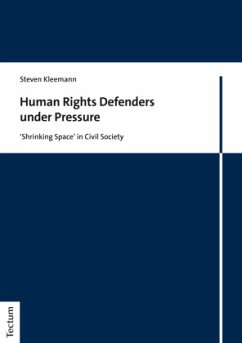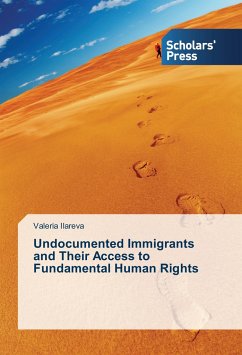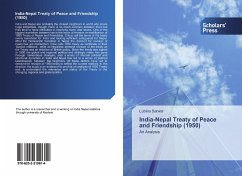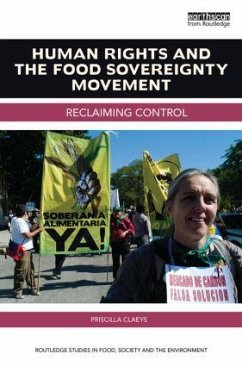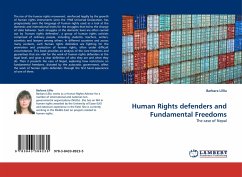
Human Rights defenders and Fundamental Freedoms
The case of Nepal
Versandkostenfrei!
Versandfertig in 6-10 Tagen
32,99 €
inkl. MwSt.

PAYBACK Punkte
16 °P sammeln!
The rise of the human rights movement, reinforced legally by the growth of human rights instruments since the 1948 Universal Declaration, has progressively seen the language of human rights used as a tool at the domestic and international levels for the struggles that led to the change of state behavior. Such struggles at the domestic level are often carried out by human rights defenders', a group of human rights activists comprised of ordinary people, including students, teachers, writers, scientists and lawyers among others. In different countries and across many contexts, such human rights ...
The rise of the human rights movement, reinforced legally by the growth of human rights instruments since the 1948 Universal Declaration, has progressively seen the language of human rights used as a tool at the domestic and international levels for the struggles that led to the change of state behavior. Such struggles at the domestic level are often carried out by human rights defenders', a group of human rights activists comprised of ordinary people, including students, teachers, writers, scientists and lawyers among others. In different countries and across many contexts, such human rights defenders are fighting for the promotion and protection of human rights, often under difficult circumstances. This book provides an analysis of the core freedoms and guarantees that are vital for the work of human rights defenders at the legal level, and gives a clear definition of who they are and what they do. Then it presents the case of Nepal, exploring how restrictions on fundamental freedoms, dictated by the autocratic government, affect the work of human rights defenders through the first hand experience of one of them.



